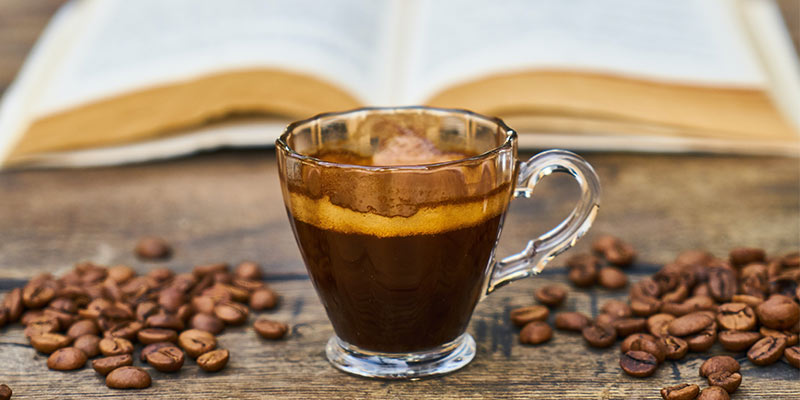Intermittent fasting (IF) is one of the most popular methods of weight loss today. While stopping eating for a few hours throughout the day is part of the plan, staying away from caffeine adds another challenge to this diet plan. Can I drink coffee on an empty stomach? After all, it’s only fair to view it as essential.
If you are still concerned about having to change your coffee drinking habits, read on to learn how an intermittent fasting diet can affect your coffee drinking habits.
What can be gained from fasting intermittently?
We all know that for ketogenic dieters, I generally recommend fasting in conjunction with it, because it’s easy for ketogenic dieters to fast, and there are really many benefits to fasting.
Fasting is one of the fastest and easiest ways to get into ketogenesis. If you don’t eat and your body needs energy, you can only break down fat, and if your body only has fat coming in, it will soon produce ketone bodies.
Rapid Fat Loss: Another benefit of fasting is rapid fat loss. For those on a ketogenic diet, if you want to lose fat quickly, ketogenic with fasting is the fastest way to do so, and after adapting to ketogenic, there is little difficulty.
Improve insulin sensitivity In the long run, fasting is an effective way to improve insulin sensitivity. Most ways to promote fat burning and energy consumption, such as exercise and low-carbon-diet, will improve insulin sensitivity over time once weight loss begins.
Activating cellular autophagy Autophagy, is the process by which cells transport damaged, degenerated, and senescent proteins or organelles within the cell, into the [lysosome] and degrade them. In layman’s terms, cell autophagy is a process of replacing cell parts. There are many parts inside our body cells, including organelles, proteins, cell membranes, etc., which will age and fail due to long-term use and lack of repair.

Can I combine coffee and intermittent fasting?
Because a brewed cup of coffee contains no fat and almost no calories, it won’t affect your fasting ……. As long as it’s black, all your regular coffee variants and additions will burn your fat and calories – and as you know, burning fat and calories means you’re no longer fasting.
According to the USDA, plain black coffee (per cup) contains about 2 to 5 calories. But once you start adding sugar, milk or cream, you add anywhere from 16 to nearly 100 calories. So while your cup of coffee is a great way to help you get through your fast, make sure you drink it straight. The more calories you give your body, the more external fuel it must use for energy, which means theoretically it won’t use the glucose stored in fat cells.
Which coffee to choose when fasting?
Bulletproof Coffee
If you want to stay hyper and active while fasting, then bulletproof coffee is the best choice. Of all the energy sources, fat has the least effect on insulin, and we can also deduce that fat also has the least effect on autophagy.
The fat in Bulletproof coffee has very little effect on insulin and blood sugar, and therefore, has very little effect on autophagy. What affects autophagy in Bulletproof coffee is protein. Butter contains a small amount of protein, which may affect autophagy, but I think that a small amount can be used without much concern, and autophagy may still continue after consumption.
Those who choose to drink bulletproof coffee will usually drink it in the morning or on fasting days.
Many people will worry about whether drinking in the morning will interrupt the fasting, if you have concerns, you can drink later in the morning, eat less at noon if you are not hungry, and eat early next lunch, two meals a day is not bad.
If you drink bulletproof coffee on a fast day, you can drink it without worrying. Bulletproof coffee may interrupt fasting for a short time, but the biggest benefit of drinking bulletproof coffee is that it prolongs the fasting time.
Heavy Cream Coffee
Heavy cream is 45%-47% milk fat, while light cream is 30%-36% milk fat, obviously, heavy cream is higher in fat and lower in protein and carbohydrate. 30g of heavy cream contains about 1g of carbohydrate (lactose) and 1g of protein, so adding heavy cream to coffee will not affect fat burning.
Coffee with almond/nut milk
As long as it’s not sweet, there’s no extra protein added to the almond/nut milk, and you’re not taking the plunge and pouring half a cup at a time, it won’t make much of an impact because one cup of almond/nut milk is almost 1g of dietary fiber, 1g of protein, and zero sugar.
If you are going to fast, black coffee without any modifications is your first choice, drip coffee, hand brewed coffee, espresso, Americano is right. If you want to add flavor enhancers, add the right amount of heavy cream, note, not light cream, because light cream in coffee shops is usually half milk and half cream, and milk adds to the protein and carbohydrate load.
Can coffee enhance the effects of intermittent fasting?
Since coffee can make you feel refreshed, it’s natural to wonder if it could give you an extra boost while you’re fasting. Here’s the problem: There’s no data to support this idea or turn it off, so it’s really hard for experts to say one way or the other.
Unsweetened black coffee increased the metabolic rate by about 3% to 4%, noting that this could be seen in a slight increase in body temperature. This effect peaks about 90 minutes after consumption and will occur with subsequent cups of coffee as long as they are spaced two to three hours apart. Fasting will actually slow down your metabolism as your body tries to lower your metabolic rate to conserve energy. So while coffee may slightly increase your metabolism in a fasted state, your body is also running at a slower rate. Essentially, drinking coffee doesn’t give you any particular benefit.

What else can I drink while I’m fasting?
When doing intermittent fasting, it is important to fully understand what to drink, how to drink it and when to drink it. Here are some of the drinks you can drink while following a routine:
Apple Cider Vinegar: You are sure to feel hungry during your fast, so try a glass of apple cider vinegar. Apple cider vinegar helps reduce food cravings and helps relieve hunger pangs.
Tea: Whether it’s black, green, oolong, or herbal tea, tea is great for intermittent fasting. True teas (unlike herbal teas) can increase the effectiveness of a fasting program by supporting intestinal health. In addition, green tea may increase satiety and aid in weight loss.
Water: The amount of drinking water is the first thing you need to secure. Stay hydrated and water can help you lose weight. Increased hydration can speed up your metabolism and improve your body’s ability to burn fat.
You should replenish plenty of water during your fast, and you can choose to add mint or even cucumber for a more refreshing taste.
Bottom Line
Intermittent fasting is for health, for a clearer understanding of your inner self and to improve your relationship with food. A healthy body is the best garment, and fasting also makes you happy physically and mentally, surrounded by positive energy every day, like a seed constantly being nourished by the sun and rain, full of confidence.
If intermittent fasting is making you uncomfortable and painful, please stop fasting immediately.




